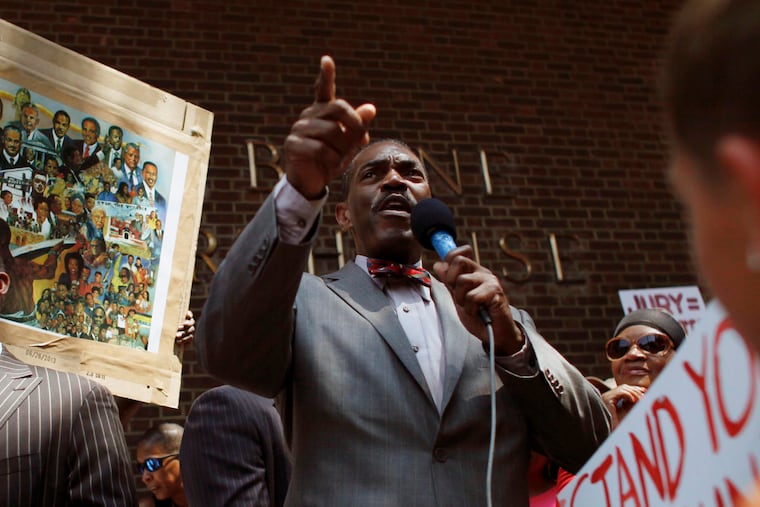As clergy, we stand together against hate and anti-Semitism | Opinion
The African American clergy members in POWER — Christian, Muslim, and others — stand in solidarity with our Jewish siblings in denouncing the anti-Semitic social media post by Minister Rodney Muhammad.

“Silence is Violence.” So says the mantra of millions of Americans in the streets as we call out those who refuse to speak up in the face of anti-Black police violence. The expression, however, holds true for other marginalized groups. When we remain silent as others who also have historically been the target of white supremacy, it is violence. We must all speak up not only against acts of anti-Blackness, but also acts of Islamophobia, homophobia, transphobia, and yes, anti-Jewish words and actions.
The African American clergy members in POWER — Christian, Muslim, and others — stand in solidarity with our Jewish siblings in denouncing the anti-Semitic social media post by Minister Rodney Muhammad. In this moment of unprecedented violence and hatred toward marginalized groups, we must all stand together.
Yet, we recognize that unity is easier said than done in a society that consciously acts to divide us. Although POWER is an interfaith, multiracial organizing effort made up of members of multiple faith traditions and racial backgrounds, we know firsthand that our differences come with a great deal of tension. Staying at the table and working together is not easy. There have been times when everyone at some point wanted to walk away from the struggle. From the outside, it may look as if we have it all figured out. But we acknowledge that the friction played out in the larger society is always present within our own circle. Perhaps the reason that the tensions have not torn us asunder is that we have been bonded by our shared pain and our work for a Beloved Community.
Whether it was a Black church in Charleston, a synagogue in Pittsburgh, or a mosque in Christchurch, New Zealand, the first expressions of concern from within our POWER clergy group have come from persons who hold a different faith tradition. We have wept together in pulpits of mosques, synagogues, and churches. We have cried on the shoulders of our neighbors when words were inadequate. And in those moments, we did not think that we needed to run to the aid of our Jewish, Black, or Muslim colleague; we ran to them because they were friends and partners in the work for justice who were hurting.
Justice demands more than apologies and corrections. It is about doing the hard work of being together as a larger community and working toward fairness for all. It demands that we pick up our shovels, picks, and wheelbarrows to dig up the painful roots of white supremacy that live within each of us and become “architects of a new America” where justice and equity — as well as dignity and respect — thrive.
We invite others to join us in this work. It is messy, it is difficult, it sometimes feels overwhelming, but we find that it is possible because we are in it together. We cannot afford to allow one another to suffer in isolation. When we refuse to be separated by our targeted identities, when we insist on standing together, we can actually name the truths that harm our communities: extreme wealth inequality, white supremacy, anti-Semitism, Islamophobia, gender inequity, and more.
We can work to build a world that respects the dignity of all of Creation knowing that there are no “throw away” people or places. We need each other, we need the earth. That’s why in our multifaith network, we don’t stand silent. That’s why we keep turning toward each other; that’s why we keep crying and learning and forgiving and calling each other into doing the work of building a just world. None of us are disposable; we are all created by the Divine. Let us see each other and lift each other up in the sight of all.
Imam Abdul-Halim Hassan is cochair, board of directors of POWER. The Rev. Mark Kelly Tyler, Ph.D., is codirector of POWER Live Free.